
The Moldy Peaches were an American indie group founded by Adam Green and Kimya Dawson. Leading proponents of the anti-folk scene, the band has been on hiatus since 2004. The appearance of their song "Anyone Else but You" in the film Juno significantly raised their profile; Dawson and Green made a handful of reunion appearances together in December 2007.

M.I.U. Album is the 22nd studio album by American rock band the Beach Boys, released October 2, 1978 on Brother/Reprise. Recorded during a fraught time for the band, only Mike Love, Al Jardine, and Brian Wilson appear consistently throughout the album, with Carl and Dennis Wilson audible on only a few tracks. Produced by Jardine and songwriter Ron Altbach, the album's title stems from Maharishi International University in Fairfield, Iowa, where the majority of the album was recorded.

Hot Rats is the second solo album by Frank Zappa, released in October 1969. It was Zappa's first recording project after the dissolution of the original version of the Mothers of Invention.
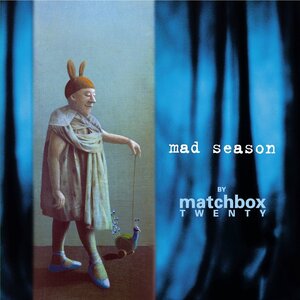
Mad Season, also known as Mad Season by Matchbox Twenty, is the second studio album from American rock band Matchbox Twenty, released in May 2000.

C'mon, C'mon is the fourth studio album by American singer-songwriter Sheryl Crow, released on April 8, 2002 in the United Kingdom and April 16, 2002 in the United States. Lead single "Soak Up the Sun" peaked at No. 1 on the Billboard Adult Contemporary chart and No. 17 on the Billboard Hot 100, becoming one of her biggest hits since "All I Wanna Do". The album was arguably her most pop-influenced to date, a big departure from the folk and experimental influences on her previous release, The Globe Sessions.

Adam Green is an American singer-songwriter, artist and filmmaker.

Electric Version is the second studio album by Canadian indie rock group The New Pornographers. It was released on Matador Records and Mint Records on May 6, 2003.
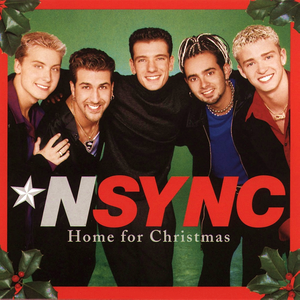
Home for Christmas is the first seasonal and second studio album by American boy band NSYNC. The album was released, exclusively in the United States, on November 10, 1998, following the success of their debut album. On October 27, 1999, Home for Christmas was certified Double Platinum by the RIAA for shipment of two million copies in the United States. Home for Christmas was released on September 30, 2002 in the United Kingdom as The Meaning of Christmas on Ariola Express with an altered track listing. "Merry Christmas, Happy Holidays" was released as a single in the United States, and in Germany as well, due to its inclusion on the group's German seasonal album, The Winter Album. As of December 2014, Home for Christmas has sold 2.8 million copies in the United States, making it the fifteenth best-selling Christmas/holiday album in the U.S. since Nielsen SoundScan started tracking music sales in 1991. The album has sold over 4 million copies worldwide.

Lionel Richie is the eponymous debut solo studio album by American singer Lionel Richie, released on October 6, 1982, on Motown Records. It was recorded and released while Richie was still a member of the Commodores; he left the group shortly after the album's release. The first single from the album, "Truly", topped the Billboard Hot 100. Follow-up single "You Are" reached number four, and "My Love" reached number five. The album was also a hit, reaching number one on the Cashbox albums chart on December 11, 1982.

The Genius of Ray Charles is a 1959 Ray Charles album, released in October by Atlantic Records, the seventh album since the debut Ray Charles in 1957. The album consists of swinging pop with big band arrangements. It comprises a first half of big band songs and a second half of string-backed ballads. The Genius of Ray Charles sold fewer than 500,000 copies and charted at number 17 on the Billboard 200. "Let the Good Times Roll" and "Don't Let the Sun Catch You Cryin'" were released as singles in 1959.

Dog & Butterfly is the fourth studio album by American rock band Heart, released on October 7, 1978, by Portrait Records, following a legal dispute with Mushroom Records over the release of the band's second studio album, Magazine, in April 1978. Dog & Butterfly peaked at number 17 on the US Billboard 200 and has been certified double platinum by the Recording Industry Association of America (RIAA). The album spawned the singles "Straight On" and "Dog & Butterfly".
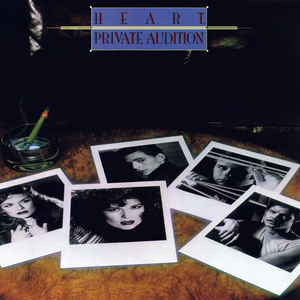
Private Audition is the sixth studio album by American rock band Heart. It was released on June 5, 1982, by Epic Records. The album reached number 25 on the US Billboard 200, spending 14 weeks on the chart. It spawned the #33 Hot 100 US single "This Man Is Mine". It is the last Heart album to feature longtime members Mike Derosier and Steve Fossen, who left after the recording of the album and were replaced by Denny Carmassi and Mark Andes.
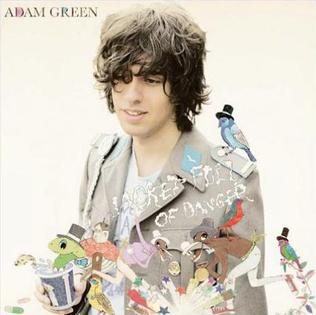
Jacket Full of Danger is Adam Green's fourth solo album, released in 2006. It revisits the string-laden melodrama of his second album Friends of Mine, mostly abandoning the uptempo country folk sound of his previous release, Gemstones.

The Moldy Peaches is the eponymous debut album by American indie rock band The Moldy Peaches. It was primarily recorded in a basement in Port Townsend, Washington and was released in 2001. The album has the dubious distinction of being released in the U.S. on September 11, 2001, the date of the attacks on the World Trade Center, and coincidentally containing the song "NYC's Like a Graveyard".
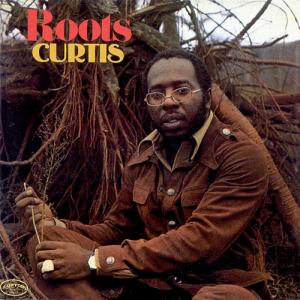
Roots is Curtis Mayfield’s second studio album, released in October 1971. Having received critical praise from a variety of publications, the album is regarded as not just one of Mayfield's best works but also as a classic release of the '70s soul era, with Allmusic critic Bruce Eder stating that "the album soars on some of the sweetest and most eloquent... soul sounds heard up to that time". The album became a commercial success as well, hitting the #6 slot on Billboard's Top R&B Albums chart.

Eldorado is the fourth studio album by the Electric Light Orchestra (ELO). It was released in the United States in September 1974 by United Artists Records and in the United Kingdom in October 1974 by Warner Bros. Records.

Unbreakable is the Backstreet Boys' sixth studio album. It was released on October 24, 2007, in Japan and October 30 in the United States by Jive Records.

A Love Story is the debut studio album by American singer Vivian Green. It was released by Columbia Records on November 12, 2002 in the United States. Green worked with a variety of producers on the album, including Anthony Bell, Junius Bervine, Durrell Bottoms, Jamar Jones, Fred Kenney, Osunlade, and Thaddeus Tribbett II. The album debuted at 93 on the US Billboard 200 in December 2002 and later peaked at number 51, also reaching number 13 on the Top R&B/Hip-Hop Albums. It was eventually certified gold by the Recording Industry Association of America.

"Yes" is the sixth track from Viva la Vida or Death and All His Friends, the fourth studio album by British rock band Coldplay. The track actually consists of two songs: the eponymous "Yes" (0:00–4:04) and the hidden "Chinese Sleep Chant" (4:04–7:06). Both compositions were written by all band members.

Lucky Seven is the seventh album by jazz keyboardist Bob James.



















